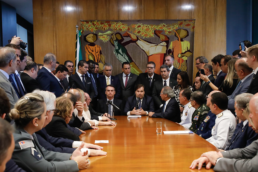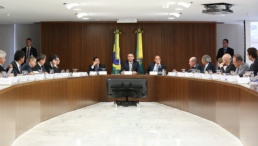Last week, Brazilian Ministry of Finance, Paulo Guedes, attended a session in the Constitutional Committee at the House of Representatives. The aim was to detail his pension reform proposals, the most important project of President Jair Bolsonaro in the beginning of his mandate. The meeting ended up in disturbance, with the Ministry almost wrestling with Zeca Dirceu, an oppositionist from the Workers Party (PT).
Taking aside several episodes of vulgarity from both sides, the public hearing was an important practice of democracy. During almost seven hours, Paulo Guedes worked hard to explain the main topics of the bill proposed to solve the Brazilian severe fiscal crisis. Opposition and undecided parliamentarians presented their critics and demanded more information, mainly about the idea to implement a pension system based on capitalization and the Ministry target to save R$ 1 trillion (more than US$ 250 billion) over the next ten years.
During the meeting, many representatives expressed their dissatisfaction with the lack of information from the Ministry of Finance’s side, notably concerning simulations and different scenarios that government have taken into account when designing the bill. As representative Clarissa Garotinho (PROS) has pointed out, Congress representatives have the right to know, in detail, what are the assumptions and basic data regarding the current account of public pension funds and the forecasts with and without the reform.
Opponents in Congress have exposed a malfunction of Brazilian way to conceive public policies. Best practice in developed economies recommend the use of “white papers” to present to stakeholders and the public in general the diagnosis, dilemmas and prognosis considered by the government, as well as the simulations made. In Brazil, however, this is rare. In the pension reform case, nothing but a 41 slides powerpoint file and a Q&A with only 13 questions is available at Brazilian government official website about the “Nova Previdência” (New Public Pension Fund).
This lack of transparency, especially regarding a very sensible topic as worker’s retirement, tends to pose more pressure under Paulo Guedes’ sholders in his battle to approve the reform.
Original text in Portuguese here
READ MORE IN ENGLISH
29 de março de 2019
Bolsonaro’s honeymoon is over
12 de julho de 2018



